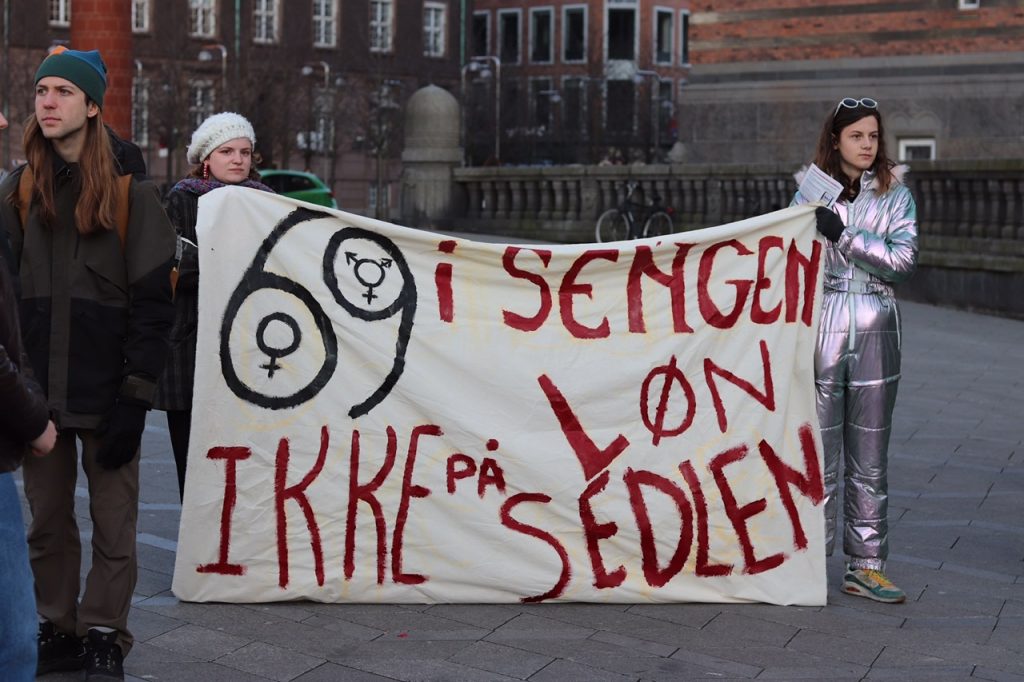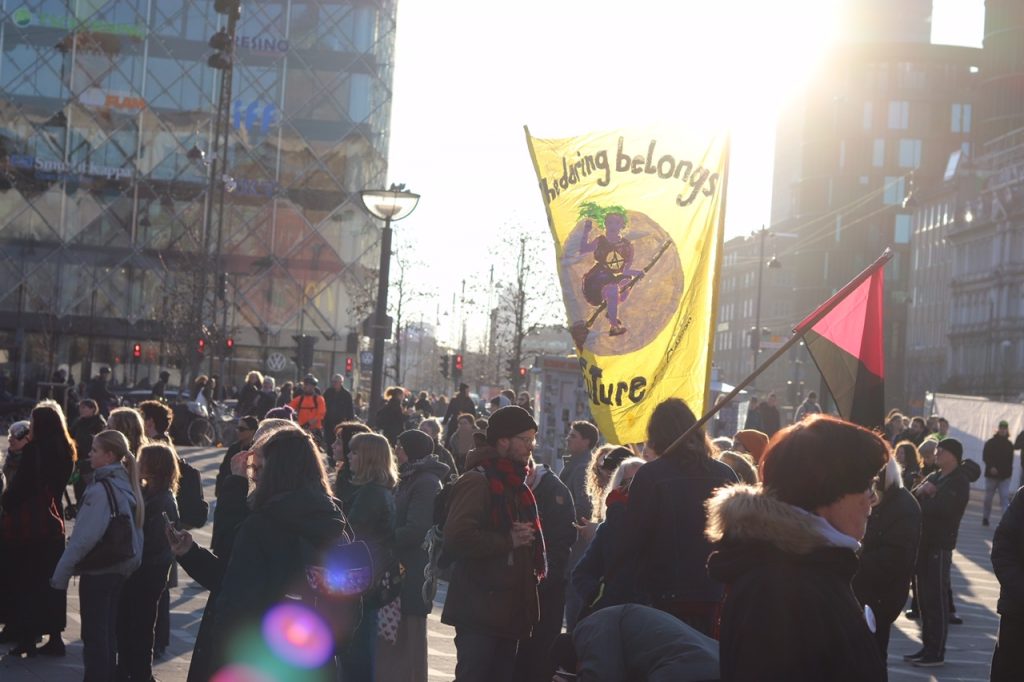
By Olivia Wynkoop and Linnéa Strömberg
Denmark is traditionally hailed as a leading force in women’s equality. But grassroots activists say women-dominated professions are still lacking in pay.
It’s March 8 — International Women’s Day. And though Copenhagen was the birthplace of the global holiday over 100 years ago, this year’s celebration was seemingly stagnant in the city’s central square.
A small crowd gathered around a make-shift stage to listen to union representative Katrine Viliel introduce eight speakers to the tangled microphone.
“I think in Copenhagen people are a bit more busy doing their own things,” Viliel said in response to the dwindling crowd.

She said the demonstration mostly came about by word of mouth among the women nurses and social workers advocating for a change in 1969 Public Servant Reform Act — which places women at a 10-20% lower pay rate than their male counterparts.
Next to the stage stood two youth socialists proudly hoisting a banner with the painted slogan “69 in the bed, not 69 in the salary,” in reference to the legislation.

“I think this really showcases that the progress is kind of stagnating right now,” said one of the girls. “So I think we need to ignite the spark again.”
To social worker Catherine Pedersen, taking an active stance in an already-progressive society is the only way to keep women’s equality at the forefront of Danish politics.
“I keep the fire burning because I really believe that if we gather together, and if we have this solidarity, then we can change the system,” Pedersen said.
